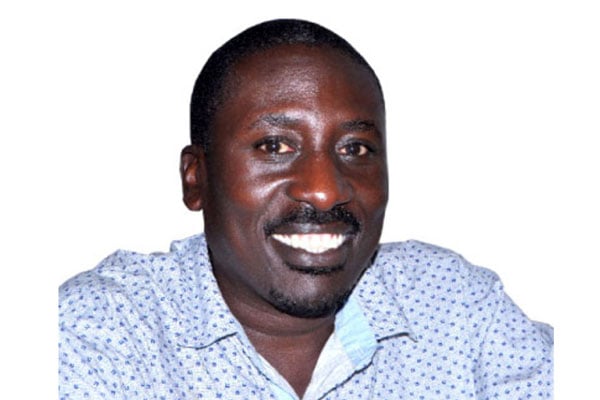Museveni’s Covid award is well-deserved

Philip Matogo
What you need to know:
‘‘The mortality rate was kept well below the global average”
It was announced during the week that President Museveni will receive a global award next month in Canada for his “distinguished leadership and dedication” in the fight against the Covid-19 pandemic.
Without any sarcasm, I think this is well-deserved.
If you recall, when the pandemic announced itself on the world scene through several deaths, we shook in our proverbial boots.
Even the President looked shaken on March 18, 2020, when he announced a 32-day nationwide lockdown from to prevent further spread of the coronavirus (Covid-19).
As I watched him speak, I thought to myself that if the President was scared; then I would soon be dead.
After all, he had the facilities to lockout the pandemic. But poor me would have no such facilities and would have to look into abysms of extended isolation and excruciating infection. Mercifully, the President soon steeled his spine and, by doing so, restored the confidence of Ugandans.
Covid-19 no longer looked that daunting once the President said, in no uncertain terms, that he intended to attach his military boots to its global posteriors.
As he plotted to give Covid-19 the boot, Ugandans even started to enjoy the lockdown. The mortality rate was kept well below the global average and the natality rate indicated that many children in Uganda were born with the names “Covid” and “Quarantine.”
In the words of journalist Timothy Kalyegira, these were the good old days that were actually bad.
The President’s speeches during this time were reassuring.
They were redolent of the fireside chats, the term used to describe a series of 30 evening radio conversations (chats) given by the 32nd US president Franklin D. Roosevelt between 1933 and 1944.
The National Recording Registry of the US Library of Congress noted the chats as “an influential series of radio broadcasts in which Roosevelt utilised the media to present his programmes and ideas directly to the public and thereby redefined the relationship between President Roosevelt and the American people in 1933.”
Indeed, President Roosevelt spoke of hope in the gloom of the 1929 Great Depression as he discussed the promulgation of the Emergency Banking Act in response to the banking crisis, the recession, new deal initiatives. President Museveni, on the other hand, called forth the singular resilience of Ugandans.
To do so, he (on several occasions) downgraded the pandemic to an epidemic. In his June 18, 2021, national address, he spoke of an “epidemic curve”. According to Google, the difference between an epidemic and pandemic is an epidemic is a disease outbreak that occurs within a specific geographical area. A pandemic, in contrast, occurs if the disease spreads to multiple areas or the entire globe.
As you can see, the subtext of the President’s recasting of the pandemic to an epidemic spoke to Ugandans specifically.
By localising the disease, then, he asked for local solutions to a global problem.
Such an ask, as it were, drew upon the uniqueness of the Ugandan experience with the disease. In a way, the President was following the dictates of the father of communism Karl Marx who said the ideas of given countries must reflect their peculiar material conditions.
Apart from such subliminal entreaties, the President employed humour. Most of his addresses were leavened with funny asides, which lightened the pandemic-enforced load.
“He who laughs, lasts,” writer Mary Pettibone Poole once said.
The President instinctively knew this to be true. And thus helped us replace tears of agony with the tears of laughter.
In the process, we lasted as he re-inaugurated his presidency to a watching world of rural and digerati Ugandans.
Mr Matogo is a professional copywriter
[email protected]




